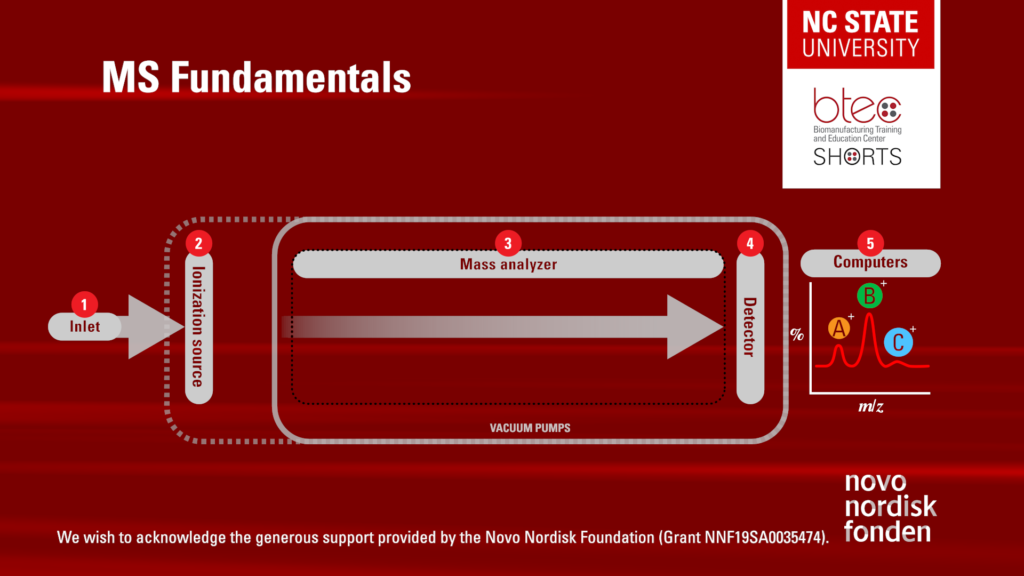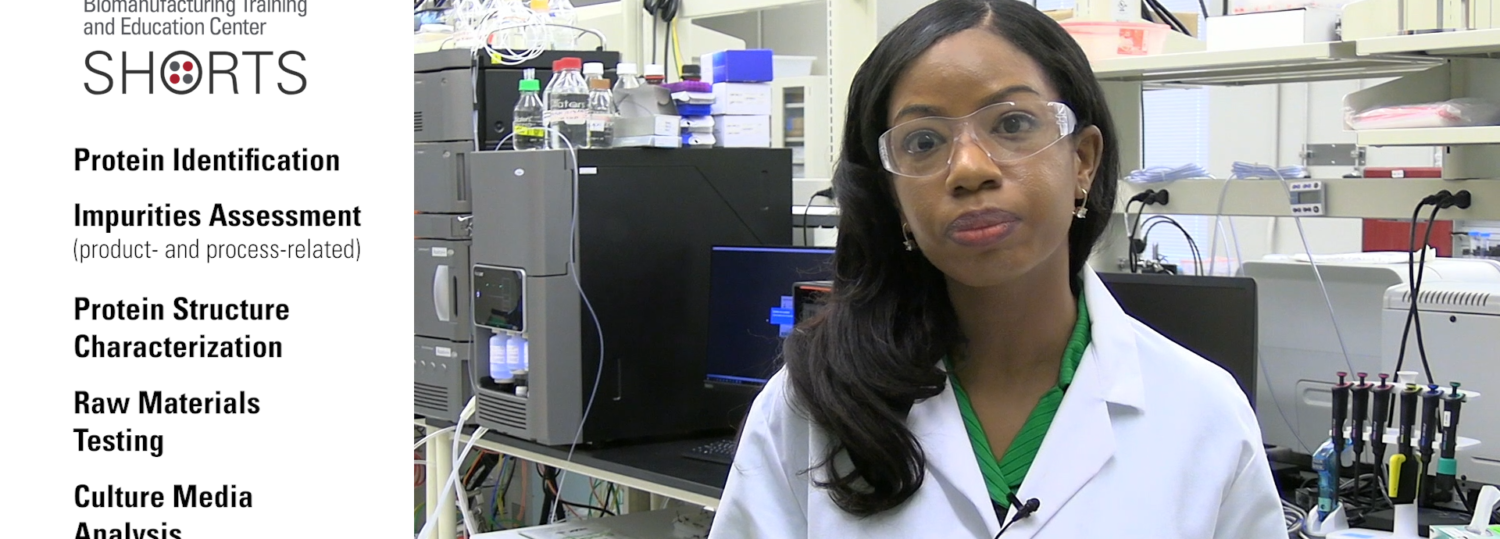Technological advancements in the field of mass spectrometry (MS) have resulted in MS-based assays playing an integral role in biotherapeutics development and manufacturing. With the development of new and improved MS instruments, the use of MS in biotechnology will continue to grow, presenting a steep learning curve for analysts who are more familiar with traditional techniques.
As a result, NC State’s Biomanufacturing and Training Center (BTEC) is launching a new course, Applied Mass Spectrometry in Biomanufacturing. This course, delivered online as a series of short “microlearning” modules, provides learners with the knowledge needed to implement MS in the biopharmaceutical industry.
Those who enroll will learn the fundamentals of mass spectrometry as it applies to biopharmaceutical analyses. The course illustrates the analytical usefulness of MS in quality control of protein therapeutics and provides the necessary information to transition conventional assays into an MS-based workflow. Course topics, which are organized by types of critical quality attributes (CQAs), include protein identification, impurities assessment, raw materials testing, characterization, and more.
Course content is divided into modules, and each module consists of a series of short and engaging videos, termed “BTEC shorts.” The first two modules in the series are available now and may be viewed free of charge for a limited time. The first module focuses on rapid confirmation of product using MALDI-TOF intact mass analysis, and the second module focuses on the fundamentals of mass spectrometry.
![[1] Hug, Theo. (2005). Micro Learning and Narration Exploring possibilities of utilization of narrations and storytelling for the designing of “micro units” and didactical micro-learning arrangements.](https://aim-bio.ncsu.edu/wp-content/uploads/sites/58/2023/08/Microlearning.png)
The short video format used in this course — a form of microlearning — allows the learner to access modules as needed, providing a customizable, à la carte viewing experience. Microlearning, which breaks a large body of knowledge into smaller, more easily digested pieces, is becoming an increasingly popular modality to deliver complex topics in a manner that is engaging, self-paced, and easily accessible [1].
[1] Hug, Theo. (2005). Micro Learning and Narration Exploring possibilities of utilization of narrations and storytelling for the designing of “micro units” and didactical micro-learning arrangements.The generous support of the Novo Nordisk Foundation, which funded development of this course through the AIM-Bio program, is acknowledged and appreciated.

